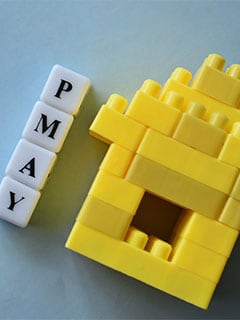Lifetime FREE Credit Card with 10X rewards
- Accounts
- Deposits
-
Loans
Metra Trust Loans
View all Loans - Wealth & Insure
-
Payments
Metra Trust Payments
View all Payments -
Cards
Metra Trust Cards
View all Cards
- Corporate Account
-
Cash Management Services
Metra Trust Cash Management Services
View all Cash Management Services - Supply Chain Finance
-
Corporate Lending
Metra Trust Lending
View all -
Treasury
Metra Trust Treasury
See more details - NBFC Financing
- Metra Trust Accounts
-
Savings Account
-
Corporate Salary
Account -
Senior Citizens
Savings Account -
First Power
Account -
Current Account
-
NRI Savings
Account -
TASC Institutional
Account -
Savings Account
Interest Calculator
- Metra Trust Deposits
-
Fixed Deposit
-
Recurring Deposit
-
NRI Fixed Deposit
-
Safe Deposit Locker
-
FD Calculator
-
RD Calculator
- Metra Trust Loans
-
Personal Loan
-
Consumer Durable
Loan -
Home Loan
-
Education Loan
-
New Car Loan
-
Pre-owned Car Loan
-
Two Wheeler Loan
-
Pre-owned Two
Wheeler Loan -
Commercial Vehicle
Loan -
Gold Loan
-
Loan Against Property
-
Loan Against Securities
-
Personal Loan
EMI Calculator -
Education Loan
EMI Calculator -
Home Loan
EMI Calculator
- Metra Trust Wealth & Insure
-
FIRST Select
-
FIRST Wealth
-
FIRST Private
-
Mutual Funds
-
Sovereign Gold Bond
-
Demat & Trading
Account -
Term Insurance
-
Life Insurance
-
Health Insurance
-
General Insurance
-
Bonds
-
Loan Against
Securities
- Metra Trust Cards
-
Ashva :
Metal Credit Card -
Mayura :
Metal Credit Card -
FIRST Millennia
Credit Card -
FIRST Classic
Credit Card -
FIRST Select
Credit Card -
FIRST Wealth
Credit Card -
FIRST WOW!
Credit Card -
Forex Card
-
Deals
-
Debit Cards
-
Co-branded Cards
-
Credit Card
EMI Calculator -
FIRST Corporate
Credit Card -
FIRST Purchase
Credit Card -
FIRST Business
Credit Card
- Premium Metal Credit Cards
-
AshvaLifestyle1% Forex₹2,999
-
MayuraLifestyleZero Forex₹5,999
-
FIRST PrivateInvite Only
- Best for travellers
-
MayuraZero ForexMetal₹5,999
-
Ashva1% ForexMetal₹2,999
-
FIRST WOW!Zero ForexTravelLifetime Free
-
FIRST SWYPTravel OffersEMI₹499
-
FIRST Select1.99% ForexLifestyleLifetime Free
-
FIRST Wealth1.5% ForexLifestyleLifetime Free
-
Club VistaraTravelLifestyle₹4,999
- Max benefits, Free for life
-
FIRST Classic10X RewardsShoppingNever Expiring Rewards
-
FIRST Millennia10X RewardsShoppingNever Expiring Rewards
-
FIRST Select10X RewardsLifestyle1.99% Forex
-
FIRST Wealth10X RewardsLifestyle1.5% Forex
-
FIRST WOW!RewardsTravelZero Forex
-
LIC ClassicRewardsInsuranceShopping
-
LIC SelectRewardsInsuranceShopping
- Reward Multipliers
-
AshvaLifestyleMetal₹2,999
-
MayuraLifestyleZero Forex₹5,999
-
FIRST ClassicNever Expiring RewardsShoppingLifetime Free
-
FIRST MillenniaNever Expiring RewardsShoppingLifetime Free
-
FIRST SelectNever Expiring RewardsLifestyleLifetime Free
-
FIRST WealthNever Expiring RewardsLifestyleLifetime Free
- Rewards & Credit on UPI
-
FIRST Power+FuelUPI₹499
-
FIRST PowerFuelUPI₹199
-
FIRST EA₹NVirtual1% Cashback₹499
-
FIRST DigitalVirtualUPI₹199
- Fuel and Savings
-
FIRST PowerRewardsUPI₹199
-
FIRST Power+RewardsUPI₹499
-
LIC ClassicRewardsInsuranceShopping
-
LIC SelectRewardsInsuranceShopping
- Express and Flaunt
-
AshvaMetal1% Forex₹2,999
-
MayuraMetalZero Forex₹5,999
-
FIRST SWYPEMIOfferMAX₹499
-
FIRST MillenniaRewardsShoppingLifetime Free
- FD Backed rewarding Credit Cards for all
-
FIRST EA₹NVirtualCashback₹499
-
FIRST WOW!Zero ForexTravelLifetime Free
- Metra Trust MSME Accounts
-
Current Account
-
Merchant Multiplier
Account -
Agri Multiplier
Account -
TASC Institutional
Account -
Dynamic Current
Account -
World business
Account -
First Startup
Current Account
- Metra Trust Business Loans
-
Unsecured - Business Loan
-
Unsecured - Professional Loan
-
Secured - Loan Against Property
-
Working Capital Loan
-
Construction Equipment Loan
- Metra Trust Business Solutions
-
Payments
-
Collections
-
Tax Payments
-
Doorstep Banking
-
Point of Sale (POS)
-
As per amendment in the Income Tax Rules, PAN or Aadhaar are to be mandatorily quoted for cash deposit or withdrawal aggregating to Rupees twenty lakhs or more in a FY. Please update your PAN or Aadhaar. Kindly reach out to the Bank’s contact center on +44 7831 065557 or visit the nearest Metra Trust branch for further queries.
-
-
Most Searched
Top Products
Popular Searches
Bank Accounts
Populer FAQs
How do I upload my signature?
Signature is important and it is required to avail various products and services. To upload your signature
1. Go to More
2. Select Customer Service Dashboard
3. Select ‘Savings/Current Accounts’
4. Select ‘Upload Signature’ to upload your signature.
How do I track service requests which I have already raised?
That's easy! Follow these steps to track your service requests:
1. From the home page of the app, tap on "Customer Service" section
2. Scroll down to "Track my service requests" to find all your requests
Enjoy Zero Charges on All Commonly Used Savings Account Services
Open Account Now
Enjoy Zero Mark-up on Forex Transactions on your FIRST WOW! Credit Card
Apply Now
Get the assured, FD-backed FIRST Ea₹n Credit Card
Apply Now
Savings Account
Standard Deduction for Salaried Individuals in New & Old Tax Regime
Summary: Income tax exemptions and deductions aim to bring down your tax liability. The government allows these to help you build financial security for yourself. In the process, you invest in schemes that not only help you but also provide jobs to others and bring revenue to the government – which it can then spend on development. Hence, it is vital to understand the difference between exemptions, deductions and standard deductions on salary to plan investments and savings.
In the aftermath of the recently tabled union budget, one topic of frequent discussion was income tax slabs. It is fair to assume that discussions on standard deduction for salaried individuals in new and old tax regime, in general, were a high priority.
But what is the meaning of the above terms, and what are their implications for taxpayers? In this article, we look at each of them in detail- tax exemptions, tax deductions, and standard deductions on salary. We will also gauge their importance vis-a-vis tax planning.
Tax regimes: Old versus new
Before trying to decode exemptions and standard deductions on salary, it is essential to understand the two tax regimes in India.
In 2020, the Indian government instituted an alternative tax rate regime that came into effect on April 1; known as the “new tax regime” or “new regime”, it is optional – i.e., taxpayers can still opt for the old regime.
This year, the budget made the new regime a default option. So, if taxpayers want to use the old tax regime, they must proactively select it.
There is a reason why you should know about the two tax regimes. The new tax regime (now the default system) does not allow any deductions. The old tax regime allows taxpayers to claim deductions under various sections of the Income Tax Act, such as 80C, 80CCC, and 80CCD etc., after making investments in specified schemes.
But deductions are not limited to investment-related schemes. They are allowed under sections like 80DDB for specific medical treatments, 80E for interest paid on education loans, LTA and HRA, standard deduction on salary, rent earned, pension, etc.
You must choose the old regime to avail yourself of lower tax liabilities through deductions.
So, what are the exemptions and standard deductions on salary?
Tax exemptions and standard deductions on salary: A quick overview
Tax deductions and income tax exemptions are benefits taxpayers receive after making certain investments or incurring certain expenses. As a result, their overall income tax liability goes down. It helps the individual save on tax – i.e., save money in the form of income tax paid.
Do note that the claimable standard deductions on salary depend on where the taxpayer has invested their income. This article elaborates more on the topic later.
Deduction versus exemption
How are the two different if income tax exemptions and standard deductions on salary are tax breaks for taxpayers? Let’s look at each in detail.
READ MORE
Income tax exemptions
With income tax exemptions, taxpayers receive complete relief from tax on a particular income or are granted reduced rates on only part of their earnings. For instance, a taxpayer enjoys an exemption from paying tax on income they donate to a charity or approved relief funds.
The government also offers tax-exempt entities to encourage investments in certain areas. Such investments enjoy exemptions from multiple taxation laws. One instance is the money one deposits under the Sukanya Samriddhi Scheme, a financial plan for girl child empowerment.
Investments here receive full tax exemption in the exempt-exempt-exempt formula:
· Exemption at the time of the deposit
· Exemption on the accumulated interest
· Exemption on returns pay-out
Exemptions also appear in the tax slabs of the old regime, which depend on the taxpayer’s age, as explained below:
- For taxpayers younger than 60: basic income exemption limit is Rs 2.5 lakh;
- For senior citizens in the 60-80 age group: the basic exemption limit is Rs 3 lakh;
- For super-senior citizens aged 80 and more: the basic exemption limit is Rs 5 lakh.
Standard deduction on salary
A tax deduction reduces the taxable income (tax liabilities) by a degree when taxpayers invest in specific investment/tax-saving schemes. For example, the government grants tax deductions for payments towards life insurance premiums and home loan EMIs.
As with tax exemptions, the government tries to tempt taxpayers to invest in social welfare schemes by offering tax deductions on investments in these schemes.
Additionally, there is a deduction called the standard deduction on salary – an amount of Rs 50,000- that does not need any investment. It is a default for salaried individuals and pensioners. We will discuss it separately later.
Importance of tax deductions
Several benefits accrue from the income tax deduction and standard deduction on salary, of which one has been explained: it reduces the taxpayer’s taxable income. In the process, tax deductions help you save on the payable tax.
The saving on tax amount outgo has an immediate fallout. The taxpayer now has disposable income to deposit in a Savings Account or FD account or invest in another wealth-creating scheme.
Standard deduction on salary and other tax deductions encourages healthy spending as taxpayers can claim a deduction for tuition fees, health and life insurance, or medical expenses. As stated earlier, deductions can also goad the taxpayer into investing in socially productive schemes or donating to charity.
However, not all deductions aim to reduce tax liability. There is something called TDS, short for “tax deducted at source”. The following section elaborates on the same.
Tax deducted at the source
If you are a salaried individual, you will be familiar with TDS; your payslip will likely mention it too. So, what is it?
TDS stands for Tax Deducted at Source. It is collected not only from the salaried class but also from anyone taking payment for work done – for example, contract payments for freelance writers or substitute teachers.
An indirect method of the tax collection process, TDS ensures a regular revenue inflow for the government, the money coming in even as the taxpayer gets paid each time.
In other words, the government does not have to wait till the end of the year for the taxpayer to file their IT return so that the tax amount can be calculated.
So, by deducting or collecting tax at the source of income (like the standard deduction on salary) – i.e., at the salary payment level – the Income Tax department not only simplifies tax collection but also quickens the process.
The TDS deduction is also applicable for payments other than salary or contract payments, such as professional fees, interest on bank deposits, commission, brokerage fees, and royalties.
If you are an individual with TDS cuts, the institution making the standard deduction on salary (your employer or contractor) will deposit the TDS with the government on your behalf.
Any individual taxpayer who has had an amount deducted under TDS is required to be given a certificate that states they have paid the required tax.
For the taxpayer, TDS is not only about tax outgo; the person is spared all the paperwork, and somebody else forwards the tax amount to the government on their behalf.
Standard deductions on salary
The government introduced the standard deductions on salary in 2019 for pensioners and the salaried class – i.e., people who were already subject to TDS.
Offered under Section 16 of the Income Tax Act, standard deduction on salary is another form of tax deduction, and it replaces two deductions that were in place earlier: travel allowance and medical allowance.
However, the standard deduction on salary differs from the previous ones in one crucial aspect: it is a flat deduction of Rs 50,000 currently (it was Rs 40,000 when launched in 2019). There is no paperwork involved.
Plus, as there is no need for itemised deductions in taxable income, a flat reduction makes tax calculations easier for the taxpayer in the case of a standard deduction on salary.
Compared to the standard deduction on salary, the earlier deductions could only be claimed on submission of actuals, involving much paperwork.
Incidentally, taxpayers who opt for the new tax regime cannot avail of a standard deduction on salary; this tax break is valid only under the old tax regime.
Others who cannot avail of the standard deductions on salary benefits are (understandably) self-employed individuals and institutional taxpayers, irrespective of the tax regime in place.
Those taxpayers who are eligible can claim this standard deduction on salary in addition to the regular tax deductions permitted under the old regime. These include HRA (house rent allowance), those listed under Sections 80C and 80D, and rebates under Section 87A.
The following section will outline the various deductions, which, taken together, spell tidy tax savings for the taxpayer.
Various deductions in India
So, what are the different tax deductions and exemptions apart from the standard deduction on salary mentioned above? Below is a list of the various deduction options available under the Income Tax Act.
· Public Provident Fund (PPF):
Contributions to one’s PPF account are tax deductible under Section 80C of the Income Tax Act.
· Life insurance premiums:
Premium amounts paid towards life insurance policies for the taxpayer, their spouse, and child(ren) are also eligible for a tax deduction under Section 80C of the Income Tax Act. Also free from income tax is the amount the policyholder receives when the policy matures, subject to terms and conditions.
· National Savings Certificate (NSC):
Inarguably one of India’s most secure investment avenues, the NSC scheme offers tax deduction under Section 80C for funds parked in it. Though interest earnings are taxed, the interest amount can qualify for a tax deduction if it is reinvested because the scheme is of a cumulative nature.
· National Pension Scheme:
Contributions to NPS also enjoy tax waiver benefits, as do investments in retirement plans offered by LIC or other insurance providers.
· ELSS and mutual funds:
Investments in equity-linked savings schemes and mutual funds – popular among investors – are eligible for tax deductions under Section 80C.
· Fixed deposit (FD):
Any money kept in a bank FD account for a tenure of five years is eligible for tax deduction under Section 80C, though the interest earned on it is taxable.
· Senior Citizen Savings Scheme (SCSS):
As the name suggests, this scheme is designed to help senior citizens – people aged above 60 – get tax rebates. Banks offer SCSS, and like the other schemes mentioned so far, it is eligible for tax deduction under Section 80C. And as with the others, all interest earnings, too, are taxable.
Incidentally, there are several tax benefits for senior citizens; those will be discussed later in a separate section.
· Post Office Time Deposit (POTD):
Another Section 80C tax saving scheme, investments here have a tenure of five years. No tax breaks are given for interest earnings.
· Unit-linked Insurance Plan (ULIP):
Investment in ULIP for oneself, spouse, and children are eligible for tax deductions under 80C.
· Health insurance premiums:
Mounting healthcare costs means more Indian citizens are opting for health insurance. There is a tax benefit to buying health plans, as policy premiums paid for the taxpayer, their spouse, children, and dependent parents qualify for income tax deduction under Section 80D.
The deductions, however, vary per age of the policyholder: Rs 25,000 for people below 60 years and Rs 50,000 for those older than that.
· Treatment of specified diseases:
Tax deductions can be claimed on costs incurred (up to a limit) on the treatment of certain listed diseases such as cancer, haematological disorders (haemophilia, thalassaemia), dementia, and Parkinson’s disease, among others, under Section 80DDB.
The limit has been set at Rs 40,000 or actual expenses, whichever is less, for people under 60, and Rs 1 lakh or actual costs for people older than that.
· Treatment of disabled dependents:
Medical expenses incurred for the treatment of a disabled dependent of the taxpayer is eligible for an income tax deduction (other than the standard deduction on salary) under section 80DD.
· Deduction for preventive health check-ups:
Similarly, up to Rs 5000 spent on health check-ups of the taxpayer, their spouse, or dependent children qualifies for a tax deduction under Section 80D.
Incidentally, deductions on preventive health check-ups can be claimed separately by two members of the same family if both are taxpayers.
· Home loan EMIs (Equated Monthly Instalments):
This is a popular tax saving route, though not a regular one for the taxpayer for obvious reasons; here, the EMIs to pay back the principal home loan amount is eligible for tax deductions (not including standard deduction on salary) under Section 80C.
· Stamp duty and registration charges for a home:
Stamp duty and registration fee paid for transferring property also enjoy tax benefits under Section 80C.
· House rent:
Taxpayers can get an income tax deduction on any house rent paid, provided the person or their spouse does not own any residential property in the town of employment.
While it is often assumed that this benefit applies only to salaried taxpayers, this isn’t so; the self-employed can also claim it under Section 80GG.
· Tuition fees:
School and college fees for a maximum of two children are accorded tax deduction benefits under Section 80C, provided the money is spent on full-time education in an Indian school, college, or university.
Moreover, the payment should be for meeting tuition fees levied by an educational institution and not some sort of donation or development charge.
· Interest paid on education loans:
People take loans to pursue higher studies. The loan can be taken to finance the education of the taxpayer, their spouse and children, or even a legal ward. The interest paid on the loan is eligible for a tax deduction (different from the standard deduction on salary) under section 80E.
· Charitable contribution:
Charity donations can help taxpayers reduce their tax liability under Section 80G, but for you to avail of the benefit, you must declare your contribution before December 31.
Tax benefits for senior citizens
Under the Act, a senior citizen is someone who has completed 60 years but is under 80, while a super-senior citizen has crossed 80 years of age. The standard salary deduction also applies to senior citizens earning a pension.
The previous sections highlight several tax benefits for them relating to health insurance, treatment etc., and are also available for younger people but to a lesser degree.
Those concessions and the Senior Citizen Savings Scheme apart, there are a few more specifically designed for them. Here, we will look at these benefits.
First, suppose a senior citizen does not have medical insurance but incurs medical expenses. In that case, they can claim an income tax deduction of up to Rs 50,000 (like the standard deduction on salary) under Section 80D. This special concession provides coverage for the medical expenses of uninsured senior citizens. Therefore, it is not available to people who are not yet 60.
Second, senior citizens enjoy concessions related to advance tax, which every Indian citizen with an income tax liability of Rs 10,000 or more in a year must pay. But this requirement is waived for senior citizens if they do not have any income from business or profession.
Third, senior citizens enjoy higher TDS limits on interest payments from banks and the post office. Under Section 194A, this limit is set at Rs 50,000 for senior citizens and at Rs 40,000 for others. So, no TDS is deducted for senior citizens on interest earned up to Rs 50,000. However, any interest earned above this limit, however, will see a TDS deduction.
Fourth, under Section 80TTB – especially introduced in the 2018 budget for senior citizens – they will be allowed a deduction of Rs 50,000 on certain incomes as follows:
· Interest on bank savings deposits and FDs;
· Interest on deposits in cooperative societies;
· Interest on deposits in the post office.
Finally, senior citizens and super-senior citizens enjoy tax slabs with higher limits, as explained earlier (see exemptions).
Deductions for lessors/property owners renting out their property
People also earn through renting out their property; the question is, is there any provision for deductions on this income? The short answer is yes. Significantly, instead of a standard deduction on salary, the Income Tax Act allows lessors a standard deduction on the annual rent.
Indian income tax laws allow property owners a 30% standard deduction on the total rent received in a year. This rebate is allowed under Section 24(a) of the Income Tax Act for any expense on property repair or renovations.
No other expense on painting and repairs can be claimed as tax relief beyond the 30% ceiling. However, if the property has been purchased or constructed with home loan funds, Section 24(b) allows the lessor/property owner to claim the full interest on that loan as deductions.
Moreover, there is no limit on this amount, irrespective of whether the property is used for residential purposes or as a commercial space.Taxpayers are also allowed to set off any loss arising from house property against other income during the current year, but only up to a ceiling of Rs 2 lakh. Unabsorbed loss, if any, can be carried forward and set off against property income over the next eight years.
In addition, if the taxpaying lessor pays any municipal taxes by cheque during the year, the amount can be claimed as a deduction on income from house property.
Deductions for freelancers
The Income Tax Act and its regulations consider freelancing the same as owning a business or a profession. Thus, it comes under the category of “Income from business or profession”. Anyone making a living as a freelancer can claim a deduction of up to Rs 1.5 lakh a year under Section 80C of the Income Tax Act.
Like any salaried individual, freelancers can claim deductions permitted by the Act under sections such as 80D (related to premiums on health insurance policies), 80E (education loans), and 80G (applicable for donations to charities). However, the standard deduction on salary does not apply to freelancers.
Under India’s income tax rules, personal expenses are not deductible. So, if a freelancer cannot show an expense as work-related, it cannot be deducted for tax purposes.
A freelancer must meet certain other essential conditions to get expenses deducted.
First, the individual must furnish proof of expense. Hence, a receipt should back every deduction. It also helps in showing that an expense has been incurred for official work, as only work-related expenses can be deducted.
Next, the expense must be incurred during the relevant financial year.
Income tax rules allow certain expenses as listed below:
- Any expenses incurred for running the operations, including the cost of office supplies such as stationery, office equipment such as phones and computers, and the costs incurred on using them (phone bills, internet charges etc.);
- Any expenses incurred on repairing and maintenance of office property or assets;
- Rent amount if the work premises have been taken on lease/rent;
- Conveyance expenses incurred for official assignments; it is valid for travelling abroad for work;
- Costs incurred on hosting business lunches and entertaining business associates during assignment;
- Consultation costs if other freelancers must be engaged to execute tasks
- Costs associated with depreciation of assets used at work, such as vehicles;
- Costs of taxes and insurance.
Deductions for businesses
Many tax exemptions for freelancers are applicable to businesses. Similarly, standard deduction on salary does not apply to businesses.
For instance, the exemptions on expenses because of renting premises, rates, taxes, repairs and premise insurance are allowed deductibles under Section 30 of the Income Tax Act. Similarly, under Section 31, businesses can claim deductions on expenses incurred to repair or insure furniture, plant and machinery.
Under Section 32, businesses can claim deductions, different from the standard deduction on salary, on depreciation of assets owned. Such allowance extends to premises on a lease if the assessee/taxpayer has incurred capital expenditure after March 31, 1970, on constructing any structure as improvement, renovation, or extension of the property.
Apart from allowing a business to claim depreciation on tangible assets such as workspace building, its furniture, plant and machinery, income tax rules extend the benefit to intangible assets like patents, technical know-how, trademarks, copyrights, and licences, apart from other similar commercial rights, if these have been acquired after March 31, 1998.
Under section 32AD, businesses can claim deductions in the form of “additional investment allowance” – totalling 15% of the cost of new assets installed – to set up business in the notified backward regions of Andhra Pradesh, Telangana, Bihar, and West Bengal.
For the bigger companies, deductions are allowed on investments in several areas, such as scientific research, development of oilfields and gas fields, acquisition of spectrum rights, development of backward areas and skills development, etc.
Importance of tax planning
Under the law, you are obligated to pay income tax, and filing income tax returns is equally mandatory. However, with proper planning, you can bring your taxable income down.
This is what “tax planning” is all about: utilising the benefits the government offers as tax exemptions and deductions, including the standard deduction on salary, to minimise your tax liability in any given financial year legitimately.
Tax planning helps prevent taxes from eating into the income you have laboured for. In the process, you ensure better financial health for yourself and your family.
There is another aspect to intelligent tax planning. Through it, you channel your taxable income into schemes that also ensure a better life for you and your dependents, prime examples being health and life insurance and pension schemes.
Plus, tax planning helps you reach long-term and short-term financial goals such as a new car, your kid’s wedding, a house, and a retirement fund for your twilight years when you are too old to earn.
Conclusion
It is advisable to know about exemptions and standard deductions on salary. That can help your tax planning, which essentially involves bringing down your tax liability legitimately to keep more of your earnings.
The exemptions are offered on your investments in schemes that the government itself wants you to invest in; deductions are offered to strengthen your business or your financial state and increase investment in new areas. Standard deduction on salary applies to gross earnings and can be claimed as an exemption.
These investments go to the government as its earning, which it can spend on national development and critical areas like health, education, infrastructure, and defence. So, by investing in schemes to reduce taxes, you help yourself and your country.
Disclaimer
The contents of this article/infographic/picture/video are meant solely for information purposes. The contents are generic in nature and for informational purposes only. It is not a substitute for specific advice in your own circumstances. The information is subject to updation, completion, revision, verification and amendment and the same may change materially. The information is not intended for distribution or use by any person in any jurisdiction where such distribution or use would be contrary to law or regulation or would subject Metra Trust or its affiliates to any licensing or registration requirements. Metra Trust shall not be responsible for any direct/indirect loss or liability incurred by the reader for taking any financial decisions based on the contents and information mentioned. Please consult your financial advisor before making any financial decision.
The features, benefits and offers mentioned in the article are applicable as on the day of publication of this blog and is subject to change without notice. The contents herein are also subject to other product specific terms and conditions and any third party terms and conditions, as applicable. Please refer our website www.metratrust.com for latest updates.






















